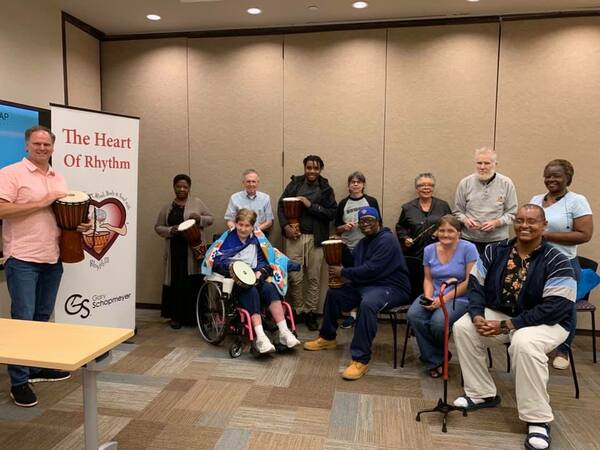TBI support services are called essential in the lives of those individuals and the families who are dealing with several types of brain injuries, including TBI, strokes, or any other neurological disorder. Some of these services are medical – about which include restoration services, counseling, and community-based services meant to enhance the lifestyles of the survival and the care givers.
Understanding Brain Injury
Brain Injury Support Services can rise from incidents such as traffic and other coincidences, falls, participation in sports, a stroke, a tumor, a contamination, and neurodegenerative diseases. The effects of a brain injury may be caring or severe liable with the severity of the injury and the part of the brain that has been exaggerated. Possible common values may be learning disabilities, physical disabilities, speech/language disabilities, and changes in behavior/personality. Due to the individuality and versatility of the head traumas, it is critical to provide client-centered services to cover time-sensitive and other requirements.
Kinds of Brain Injury Support Services
- Medical Care and Rehabilitation:
- Critical Care: Instant medical interference and steadiness following a brain injury.
- Inpatient Recuperation: Intensive therapy concentrating on physical, occupational, and speech therapies to maximize recovery.
- Outpatient Rehabilitation: Continued therapy and support as individuals transition back to their communities.
- Counseling and Psychological Support:
- Individual Therapy: Addressing emotional and psychological challenges resulting from the brain injury.
- Family Counseling: Supporting families in coping with changes and fostering understanding and communication.
- Support Groups: Connecting survivors and caregivers to share experiences and provide mutual support.
- Community-Based Services:
- Day Programs: Structured activities promoting cognitive stimulation, social interaction, and skill-building.
- Vocational Rehabilitation: Assistance in returning to work or finding new employment opportunities.
- Independent Living Support: Training and resources to help individuals regain independence in daily activities.
- Educational Support:
- School-Based Services: Specialized education plans and accommodations for children and adolescents.
- Continuing Education: Programs to help adults with brain injuries continue learning and develop new skills.
- Assistive Technology and Adaptive Equipment:
- Mobility Aids: Wheelchairs, walkers, and other devices to aid physical movement.
- Assistive Devices: Tools such as communication devices and adaptive software to aid cognitive and communication challenges.
Benefits of Brain Injury Support Services
- Improving Functional Outcomes: Early and comprehensive intervention can enhance recovery and maximize functional abilities.
- Enhancing Quality of Life: Providing resources and support networks to reduce isolation and promote social engagement.
- Empowering Caregivers: Education and training for caregivers to better understand and support individuals with brain injuries.
- Promoting Independence: Through rehabilitation and community-based programs, individuals can regain skills and independence in daily living.
- Advancing Research and Innovation: Funding and support for research into new treatments, technologies, and therapies to improve outcomes for brain injury survivors.
Challenges in Providing Support Services
- Access and Affordability: Disparities in access to specialized care and support services, particularly in rural or underserved areas.
- Complex Care Coordination: Coordinating care across multiple providers and disciplines to ensure continuity and effectiveness.
- Stigma and Awareness: Addressing misconceptions and raising awareness about the impacts and needs of individuals with brain injuries.
- Long-Term Care Needs: Planning for long-term care and support as individuals age and their needs evolve.
Innovations and Future Directions
- Telemedicine and Remote Monitoring: Utilizing technology to provide virtual consultations and monitoring for ongoing care and support.
- Personalized Medicine: Tailoring treatments and rehabilitation plans based on individual characteristics and responses.
- Neurorehabilitation Research: Advancements in understanding brain plasticity and developing targeted therapies for recovery.
- Community Integration Programs: Promoting inclusion and participation in community activities to enhance social support and quality of life.
Additional Points on Brain Injury Support Services
- Legal and Advocacy Services:
- Legal Assistance: Help navigating insurance claims, disability benefits, and legal rights.
- Advocacy Groups: Organizations that advocate for policy changes and increased funding for brain injury research and support services.
- Behavioral Management and Cognitive Rehabilitation:
- Behavioral Interventions: Strategies to address behavioral challenges such as aggression, impulsivity, and emotional dysregulation.
- Cognitive Training: Exercises and techniques to improve memory, attention, problem-solving, and executive function skills.
- Residential and Long-Term Care Options:
- Assisted Living Facilities: Housing options with varying levels of support based on individual needs.
- Long-Term Care Planning: Assistance in planning for ongoing care and residential options as needed.
- Peer Mentoring and Role Models:
- Peer Support Programs: Matching individuals with brain injuries to mentors who have experienced similar challenges.
- Role Models: Highlighting success stories of individuals who have overcome significant obstacles post-injury.
- Sports and Recreation Programs:
- Adaptive Sports: Opportunities for individuals with disabilities, including brain injuries, to participate in sports and recreational activities.
- Therapeutic Recreation: Programs designed to improve physical, cognitive, and emotional well-being through leisure activities.
- Music, Art, and Expressive Therapies:
- Music Therapy: Using music interventions to address emotional, cognitive, and physical needs.
- Art Therapy: Creative activities to promote expression, communication, and rehabilitation.
- Expressive Therapies: Incorporating various forms of creative expression to support healing and emotional well-being.
- Family Education and Support:
- Caregiver Training: Workshops and resources to educate families on providing effective care and support.
- Family Support Groups: Opportunities for families to connect with others facing similar challenges and share experiences.
- Traumatic Brain Injury (TBI) Research Initiatives:
- Clinical Trials: Participating in research studies to evaluate new treatments and therapies for brain injuries.
- Collaborative Research Networks: Organizations and institutions collaborating to advance knowledge and treatment options for TBIs.
- Emergency Response and Preparedness:
- Concussion Management: Protocols and guidelines for managing concussions and mild TBIs in emergency settings.
- Public Awareness Campaigns: Educating the public on recognizing signs of brain injury and responding appropriately in emergencies.
Conclusion
Traumatic Brain Injury support services are essential in addressing the multifaceted needs of individuals and families affected by brain injuries. By providing comprehensive medical care, rehabilitation, counseling, and community-based support, these services play a critical role in improving outcomes and enhancing quality of life. Continued innovation and advocacy are crucial to furthering research, expanding access to care, and promoting awareness and understanding of brain injuries in society. Through these efforts, individuals with brain injuries can receive the support they need to rebuild their lives and thrive in their communities.
 aisha saxena -
July 4, 2024 -
Health -
Brain Injury Support Services
Traumatic Brain Injury
-
446 views -
0 Comments -
0 Likes -
0 Reviews
aisha saxena -
July 4, 2024 -
Health -
Brain Injury Support Services
Traumatic Brain Injury
-
446 views -
0 Comments -
0 Likes -
0 Reviews

